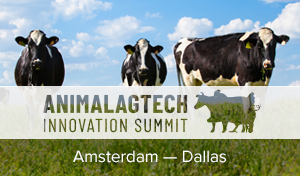Kris Wadrop, Director of Biotechnology and Jonathan Rand, Senior Scientist at CPI share their expert insights to explain the integral role of microbial technologies and the potential they have to transform our food system.

How can we feed our growing world with fewer resources? What role can microbial technologies play to tackle this challenge?
Microbial fermentation technologies provide the best opportunity for decoupling food and feed production from the dwindling agricultural land and water resources, on-which an ever-growing world population places an increasing burden. These microbial processes produce alternative sources of protein from the growth of bacteria, yeast, fungi or micro-algae on non-agricultural land using less water than would be required for producing meat from animals. Better still, the carbon and hydrogen required to generate protein does not need to be from sugars from crops it can be from carbon and hydrogen rich industrial waste gases and electrochemical sources using renewable electricity.
How can we best integrate new and existing microbial technologies into existing food chains?
The route that many companies choose to take is by first producing alternative protein for fish and livestock nutrition. This de-couples the production of animal protein from the using the resources of traditional agriculture and avoids the need to place a new product in-front of human consumers. However, with the increasing interest in vegetarian and vegan diets there is now more acceptance of non-animal sourced protein products and greater opportunity to place the new alternative protein products on the market.
How can we accelerate, scale-up and industrialize microbial technologies to support supply chains and meet demand?
Research and Technology Organizations such as CPI in the UK provide open access facilities to accelerate scale-up from the test tube to pilot scale. These facilities are readily available for sugar-based fermentations but less so for those that want to scale-up gas-fed processes. An example where CPI was able to significantly reduce the time to demonstration scale was working with Calysta; where a novel loop reactor was designed, installed and the first tonne of FeedKind produce, within 18 months. This scale of project would typically cost over £10 million and take over two years to design and deliver, however through partnering with CPI, Calysta made significant savings through leveraging CPI’s existing assets to provide the majority of utilities, services and process vessels required for non-proprietary process steps. However, open access gas fermentation pilot scale facilities are in short supply and this provides a challenge for SMEs developing their processes and requiring significant material for trial purposes. Finding the right technology partner is key to de-risking the scale-up process and delivering product for trials but one often overlooked aspect in delivering a product to market is how much time and money it can take to register a product and comply with the regulations of the different markets; scale-up and regulatory compliance need go hand in hand.
What new microbial technologies would you like to see emerge that could revolutionize the way we produce food over the next decade?
The new food revolution is already here with many different microbial technologies at the forefront of changing how we eat now, in the next decade and beyond. The main trend will be the reduced role that meat, egg and dairy will play in all our diets and we are already seeing the rapid take up of meat alternatives like the Impossible Burger and the Quorn Sausage Roll. The challenge will be in producing enjoyable sliced meat products like steaks and bacon but even now, Prime Roots are about to launch a credible alternative bacon product. Together with innovative companies such as Legendairy Foods and Clara Foods microbial technologies will be playing a large part in replacing milk and egg proteins. There also other protein products that such as sweeteners, flavorings, preservatives, HMO-alternatives, oil and fats. These have the potential to be disruptive or establish entirely new markets in the case of the rapidly emerging cannabidiol products.
How do you think the current global pandemic will change the future of food? (over the short, medium and long-term)
In the short-term national governments will be concerned with the immediate need to limit the pandemic threat to economies but it has emphasized how much our supply chains are globally reliant and how these might become disrupted in the advent of a global crisis such as a pandemic. And so governments may become more concerned about security of supply and so in the medium term might reduce their reliance on international supply chains and instead turn to a nationally secure supply of protein. In the longer term the twin threats of protein poverty for the 9.5 billion people of 2050 and the need to reduce CO2 and greenhouse gases are a global challenge that requires system thinking, not just domestic policy.
Finally, why are microbial technologies integral to revolutionizing our food system?
Microbial technologies are more sustainable when compared to other sources of protein. Using sustainable feedstocks and offering the opportunity to use industrial sources of carbon that are being developed as the world moves to a low carbon economy. Food accounts for 26% of all greenhouse gas emissions and with meat products accounting for half of this¹ and so increasing the uptake of these more sustainable technological routes to protein is key to reducing the global carbon footprint whilst protecting valuable agricultural resource and securing all our food futures. More than that, new microbial technologies offer the opportunity to serve the consumer market with a vast array of new and exciting products that meet the needs of our rapidly changing lifestyle and priorities.
Find out more about CPI at uk-cpi.com or follow on LinkedIn and Twitter

 CLOSE
CLOSE







